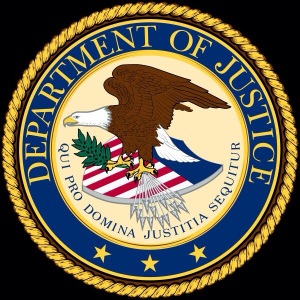 The idea that the US Attorney General has merely forgone the prosecution of users is ridiculous. The policies of this administration have allowed for the widespread commercialization of pot and unleashed a new big tobacco that is growing in power and influence as the federal government refuses to enforce clear and unambiguous federal law relating to DRUG TRAFFICKING (not use).
The idea that the US Attorney General has merely forgone the prosecution of users is ridiculous. The policies of this administration have allowed for the widespread commercialization of pot and unleashed a new big tobacco that is growing in power and influence as the federal government refuses to enforce clear and unambiguous federal law relating to DRUG TRAFFICKING (not use).
Sophistry is defined as the use of fallacious arguments, especially with the intention of deceiving. Leaving pot users alone at the federal level is one thing, but claiming that this is the intent of your actions is sophistry taken to a new level.
The American public needs to understand that low level marijuana possession offenders were never put into the American prison system.
Drug traffickers were prosecuted — because profiting from addiction put money into the pockets of drug dealers at the expense of their customers who too often become dependent on the drugs and are vulnerable to a host of health ills and harms that accompany drug abuse.
Commercializing and industrializing an increasingly potent hallucinogenic drug, and releasing the forces of addictions marketing onto the people, is not something we should be “cautiously optimistic” about.
Here’s some advice: pay attention to the “caution”. Let go of the optimism about pot profiteering as a workable drug policy plan. It has failed already. The only ones succeeding are the drug dealers — the pot profiteers. This scheme is a big loser for the rest of society.
While we support education, prevention and treatment, creating a cannabis-industrial-complex to manufacture addicts so that they can be fed into the drug treatment “system” is not a plan for drug policy in the best interest of the American people or any people.
Reducing drugs and drug use should be the obvious goal. Rather, with legalization, we are sanctioning the vast expansion of addictive drug use.
A sham and a shame. The American people will not remember this chapter in drug policy history fondly.
Below — the realities of drug policy enforcement history. So, what happens when there are no effective laws against using/selling the drug, no compliance assurance, and no enforcement? Take a look at downtown Denver. 500+ drug dealers open shop. We privatize drug profits. And we leave the social ills and costs for the public to clean up.
Things are not going well with drug legalization. Why is this administration the last to know, or to acknowledge who is winning (drug profiteers) and who is losing (the rest of us) with drug legalization?
Sanctioning large-scale manufacturing and distribution of a Schedule I controlled substance is a far cry from not wanting to put “low level people” into the federal system. The fact is, the feds NEVER focused on simple possession cases. Federal cases are usually limited to large quantities that are manufactured, distributed or possessed with the intent to distribute, often in quantities above 100 kilograms (and more often above 1,000 kilograms). The commercial operations that exist in places like Denver are bigger criminal operations than many prosecuted in the Organized Crime Unit of the US Attorney’s Office.
___________________________
Attorney General Holder Talks Marijuana
Washington (CNN) — The outgoing U.S. attorney general said he is “cautiously optimistic” when it comes to Washington and Colorado’s experiment with marijuana legalization.
Eric Holder, who announced last month his plans to retire, is one of President Barack Obama’s longest-serving Cabinet members and has faced the delicate task of defining federal policy after a wave of marijuana legalization at the state level across the country.
“We don’t want to put into the federal system, low level people who are simply there for possessory offenses,” Holder said Monday in an interview with CNN’s Evan Perez
.
Holder last year outlined eight enforcement areas the Justice Department would focus on in a move aimed at calming nerves in Washington and Colorado, the only two states where recreational marijuana is legal.
The eight “priority areas” have focused the Justice Department’s efforts on preventing marijuana distribution to minors, inter-state trafficking and drug violence.
But Holder made clear Monday that his agency could change its non-interventionist stance if the states’ regulatory frameworks aren’t up to snuff.
“What I’ve told the governors of those states is that if we’re not satisfied with their regulatory scheme that we reserve the right to come in and to sue them. So we’ll see,” Holder said.
The sale and possession of marijuana remains illegal under federal law.
The Justice Department’s policy hasn’t meant total immunity for marijuana growers and dispensaries in states with both medical and recreation marijuana, where dispensaries and growhouses have since been raided and owners prosecuted.
https://m.youtube.com/watch?v=jeGxyXhVsiIhttp://www.cnn.com/2014/10/21/politics/holder-marijuana-optimistic/